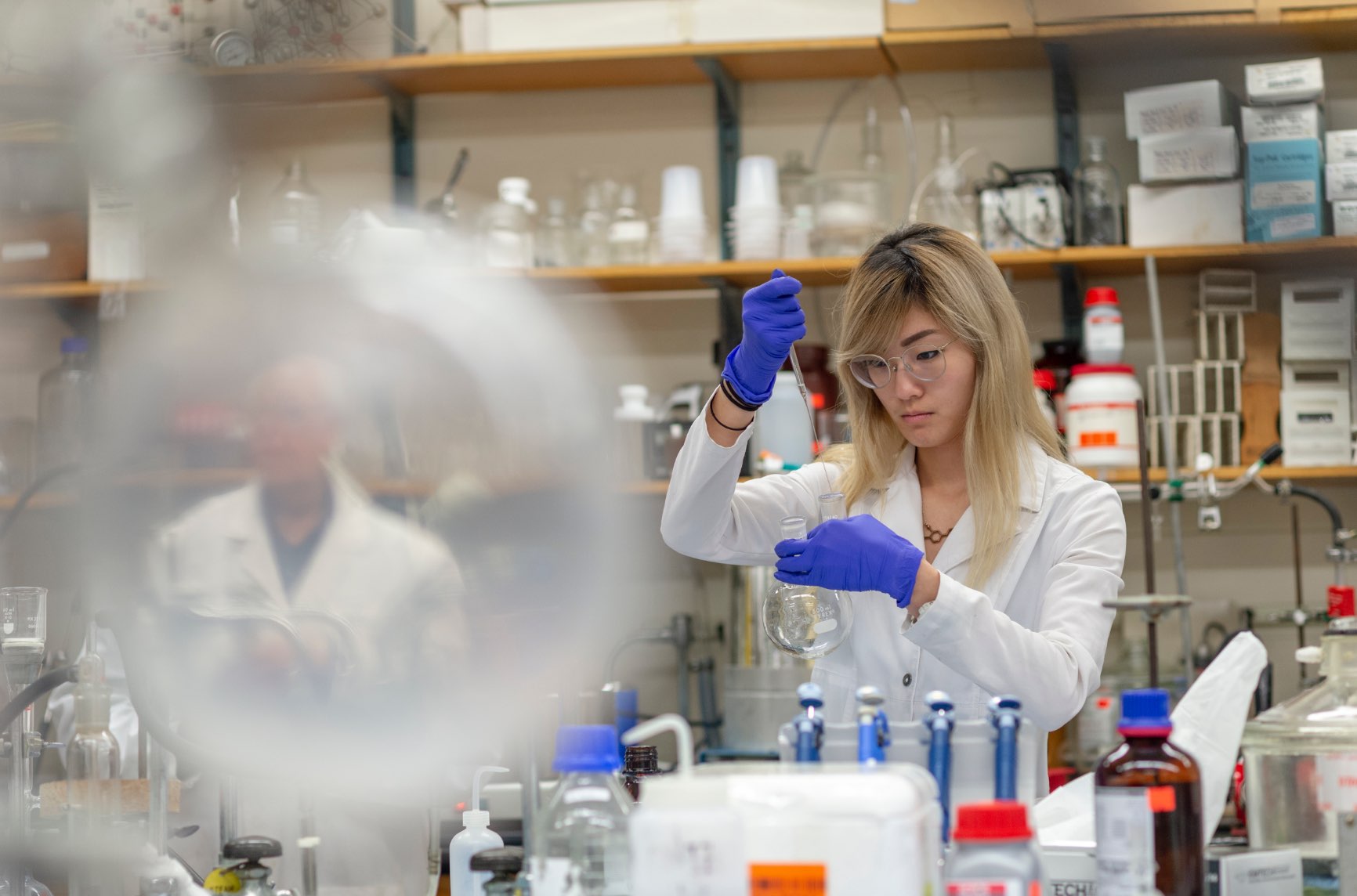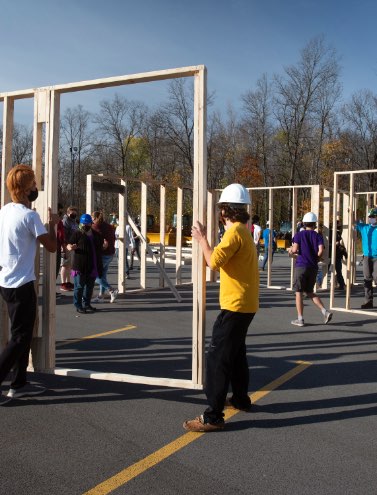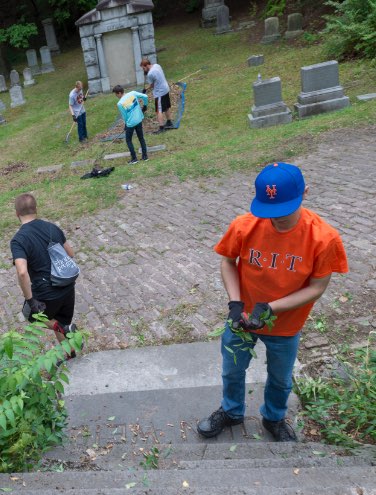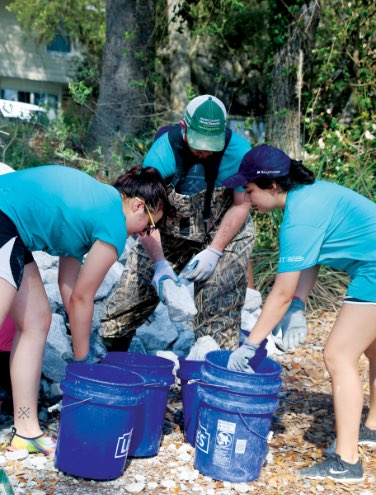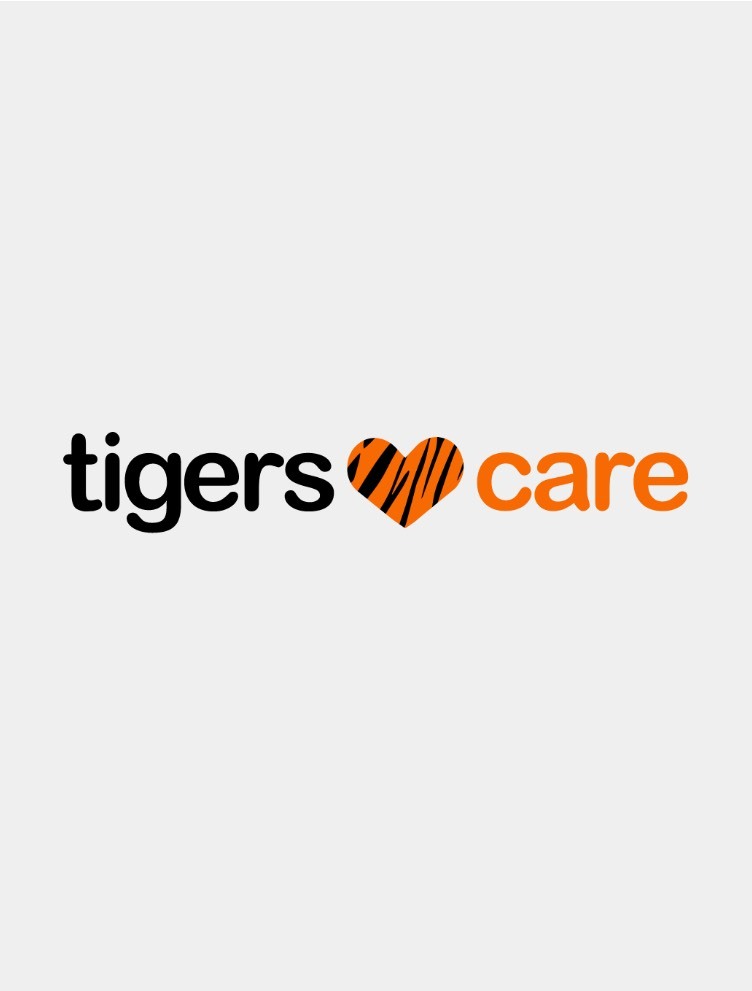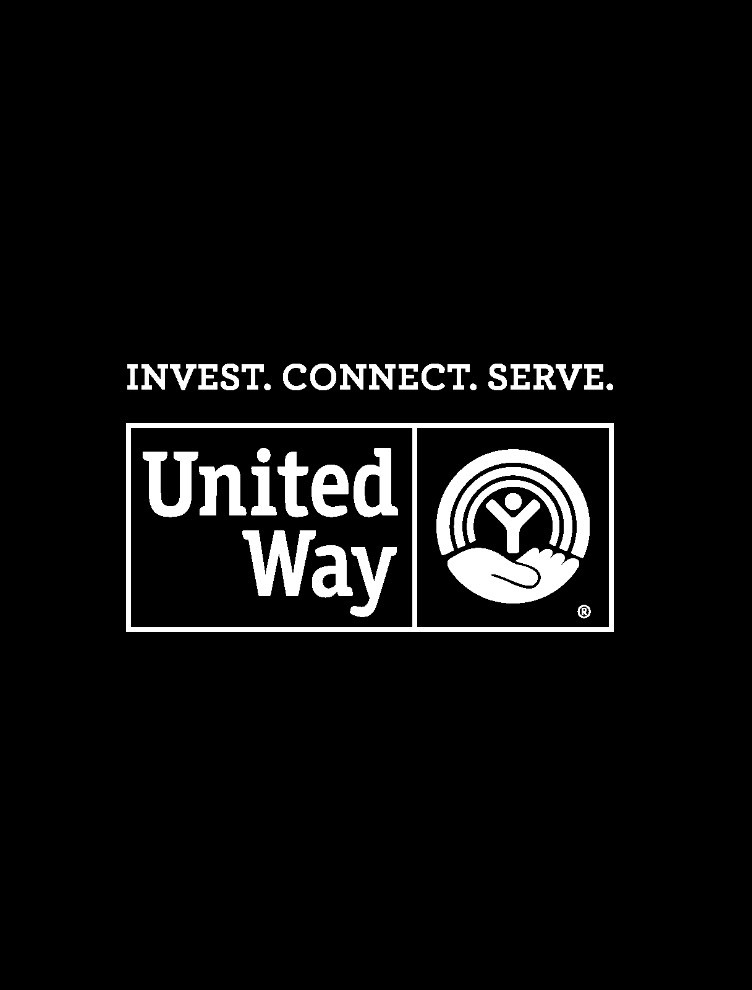Commitment to Goodness
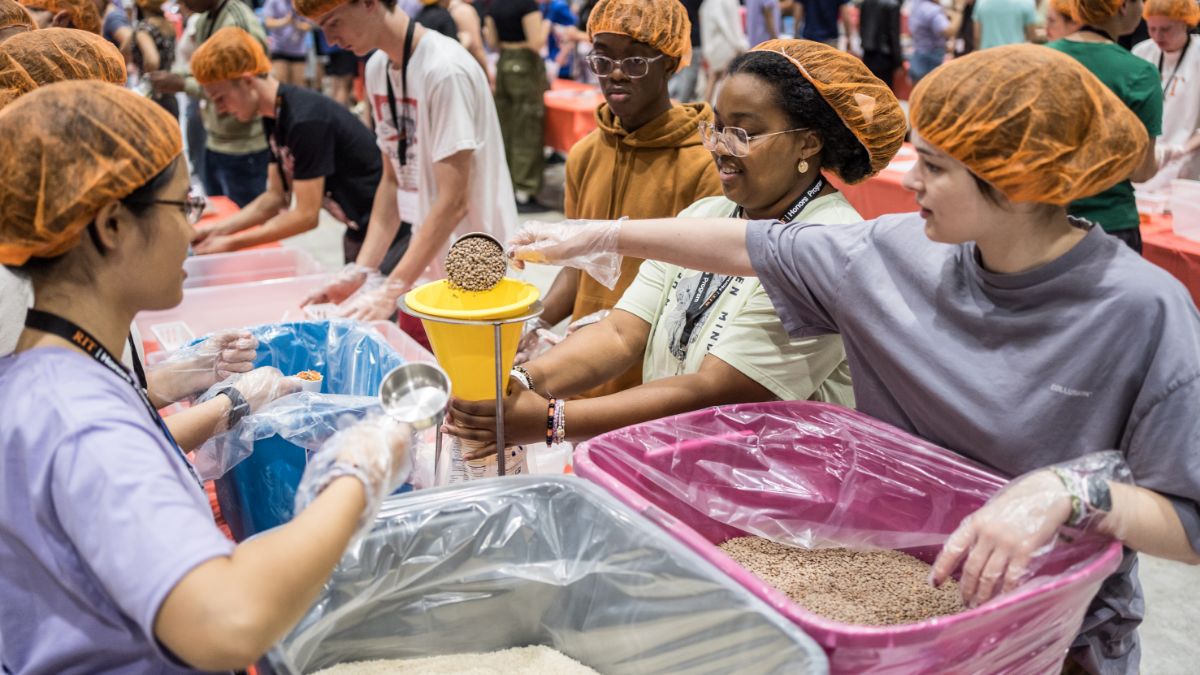
Commitment to Goodness
- RIT/
- Commitment to Goodness
The world around us—whether it’s across campus, across the country, or across borders—presents opportunities for RIT to make impacts that matter.
We have a rich history of successful collaboration across research projects, humanitarian and global volunteering efforts, implementing technology to improve accessibility, and more. On projects big and small, from disaster management in hard-hit countries like Haiti to pioneering personalized health care that advances medicine to removing plastics in the Great Lakes and improving STEM education for K-12 students, RIT is extending our reach to serve the world.
Key Facts
1
The National Technical Institute for the Deaf (NTID) is home to the world’s first and largest technological college for deaf and hard-of-hearing students
6
RIT researchers are among the authors of a paper confirming the existence of gravitational waves predicted in Albert Einstein’s general theory of relativity
135K
RIT alumni bringing goodness to the world
2,149
RIT Students Who Volunteer
20K
Hours of Community Service
$128K
Student Donations to Local and National Charities
Personalized Health Care Technology
RIT leverages its resources and expertise from a range of research centers and faculty researchers to facilitate innovation in health care. We continually build upon our history in applying science and technology to support advances in health care diagnosis, detection and identification of diseases, and novel solutions that pair medicine and technology. Learn more
Pushing the Boundaries of Cardiac Science
A new approach uses supercomputer simulations on smartphones and laptops to treat and diagnose heart conditions.
Better Breast Cancer Detection
RIT researchers found a noninvasive, cost-effective way for infrared technology to locate hard-to-find breast cancer tumors.
Can 3d-Printed Bone and Tissue Be In Our Future?
Research moves a step closer to the possibility of “smart” 3D-printed bone, skin, and cartilage tissue replacement
A Digitally Redesigned Stethoscope
With precision sensors, electrocardiogram technology, and machine learning applications, researchers revolutionize the stethoscope.
Effective Access Technology
More than one billion people worldwide live with some form of disability, and these numbers continue to grow as our elderly and military veteran populations expand. RIT’s focus on creating new ways to improve access for people with differing abilities has resulted in new products that merge technology with art and design to improve the mobility of persons with visual or hearing impairment, to expand the independence of those with cognitive or physical abilities, and to enhance the accessibility for individuals to engage in their larger communities. Learn more

Effective Access Technology Conference
Highlighting the best in design, technology, and collaboration in developing innovation solutions for increased accessibility.
Mobile Kitchen: A Customized Workspace
Modular units create work zones for cooking, cleaning, and preparation, giving users the ability to organize a kitchen that best fits their needs.
Do You Have the Next Big Idea?
Annual competition for teams of deaf and hard-of-hearing students results in creative, innovative products, technologies, and businesses.
Putting Health Technology Design at the Forefront
Studio 930 is an intensive, 10-week multidisciplinary studio experience focused on the design and production of access and health technology products.
Hope for Honduras
Innovative design and engineering solutions create a viable, equitable model of accessible and quality medical care.
Intricate 3D Maps Help Haiti Rebuild
RIT scientists swept the Haitian capital of Port-au-Prince after the 2010 earthquake with high-tech imaging, which aided the city in its relief efforts and planning and reconstruction activities.
Tackling Anemia and Malnutrition in Ghana
Nutrition research looks for ways to reduce anemia in mothers and their children
Device Developed to Better Detect Ebola
A prototype micro device with bio-sensors that can detect the Ebola virus means early detection, early treatment, and the decrease in the spread of infections.
Mapping Refugee Camps
Geographic information systems (GIS) and mapping could be used to mitigate potential emergency and disaster situations that threaten life at refugee camps.
Detecting Illegal Poaching in Africa
Elephant and rhino poachers in South Africa can run, but they can’t hide from drones.
Giving Back
Framing Frenzy
More than 200 RIT students, along with staff from Flower City Habitat for Humanity, spent two days during the annual Framing Frenzy building walls and frames for houses for Flower City Habitat for Humanity. The walls and framing, erected in a parking lot on campus, were later moved to two home sites in a northwest neighborhood in the City of Rochester. The future owner of one of the houses visited campus and thanked the students personally for their work. She and her husband, refugees from Somalia, have nine children, including one with special needs. The family is currently living in different states, and the new home will unify the family under one roof.
Service Week
Seven days, 168 hours, and dozens of opportunities for students to volunteer in community service projects. Welcome to Service Week. Organized and led by RIT’s Center for Leadership and Civic Engagement, students choose among volunteer opportunities than span recycling events; clothing, food, and book drives; blood drives; cemetery and trail cleanup; and assembling and donating school supply kits to elementary students.
Alternative Spring Break
Alternative Spring Break gives current RIT students the opportunity to engage in direct service in collaboration with communities around the U.S. and the world. Students spend five to seven days learning about critical challenges facing communities, interacting with local leaders, and performing short-term projects with community agencies. Projects have included Preservation of Protected Lands in St. Marks, Fla.; Housing Rehabilitation and Social Justice in Selma, Ala.; and Environmental Restoration after Natural Disasters in San Juan, Puerto Rico.
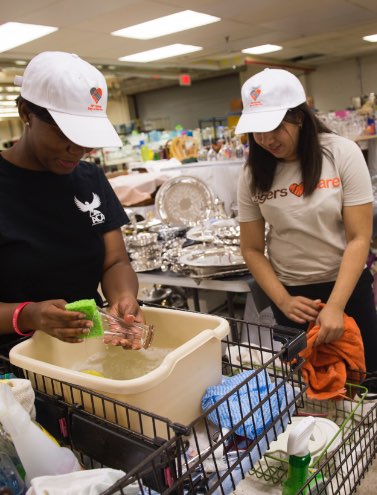
Global Day of Service
What can you accomplish in 24 hours? RIT Tigers know. The Global Day of Service is a massive, one-day, international service event where RIT alumni, their families, current students, and friends of the university go out into communities around the globe and participate in service projects. Some previous projects: alumni in Peru worked with Colegio La Alegria En El Señor, a school that serves students with special needs, on infrastructure projects around the campus; alumni volunteered at the Bowery Mission, St. Peter’s Pantry, and the Brooklyn Bridge Park Conservancy in New York; and an alum in Powder Springs, Ga., planned, organized, and ran a service project at the Edgewood Community Learning Garden.
Tigers Care
A little kindness goes a long way. Tigers Care is a campus-wide effort to enhance, promote, and sustain a culture of caring and support at RIT. Offering a smile, asking someone to lunch, complimenting a stranger, asking if someone is okay … these are all small ways that make our Tigers feel noticed, appreciated, and valued. Tigers Care also connects students to resources on and off campus.
United Way
RIT has a rich history of supporting the United Way of Greater Rochester—dating back 100 years to the early vision and contributions of legendary Rochesterian George Eastman, who founded the Community Chest, which later became the United Way. We have a passion for the Rochester community–where our students, faculty, and staff live, learn, and play. It’s important to us that we make an investment in our neighbors, friends, and family members who need our support.
Environmental Impacts
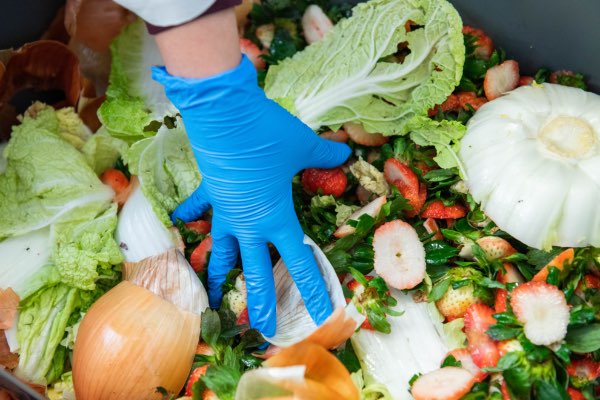
Food Waste Solutions
Faced with a growing world population and a shrinking pool of natural resources, the world today faces an unprecedented challenge to provide a resilient food supply—made even more complex by vast inefficiencies and resulting food waste generated across the food supply chain. With a $1 million award from the National Science Foundation (NSF), researchers are identifying sustainable solutions for minimizing and managing the growing and complex challenges of food waste generated across the food supply chain.

Great Lakes Plastic
An RIT study that inventoried and tracked high concentrations of plastic in the Great Lakes could help inform cleanup efforts and target pollution prevention. RIT researchers found that nearly 10,000 metric tons—or 22 million pounds—of plastic debris enter the Great Lakes every year from the United States and Canada. Matthew Hoffman, assistant professor in RIT’s School of Mathematics and Statistics, is the lead author of “Inventory and transport of plastic debris in the Laurentian Great Lakes,” which appeared in Marine Pollution Bulletin. Hoffman and Christy Tyler, associate professor of environmental science, also co-wrote an essay for The Conversation on the amount of plastic in the Great Lakes and where it goes.
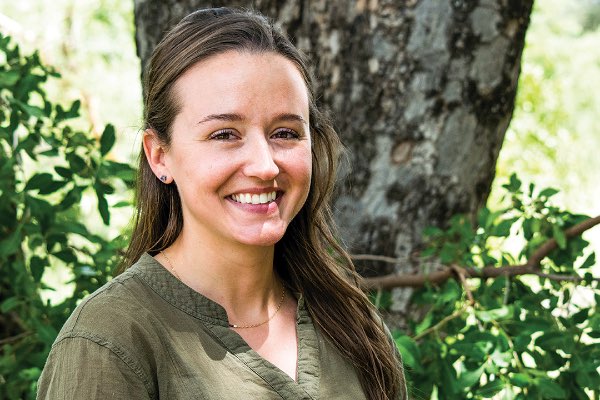
Environmental Conservation
In 2019, Kristen Denninger Snyder ’10 (environmental science) opened the Research and Innovation for the Serengeti Ecosystem (RISE) center with the Grumeti Fund in Tanzania to promote environmental conservation. After graduating from RIT with a degree in environmental science, Denninger Snyder did extensive research on African wildlife at the University of California, Davis, and is now living in Denver and working as a post-doctoral scholar at Colorado State University and the Grumeti Fund.
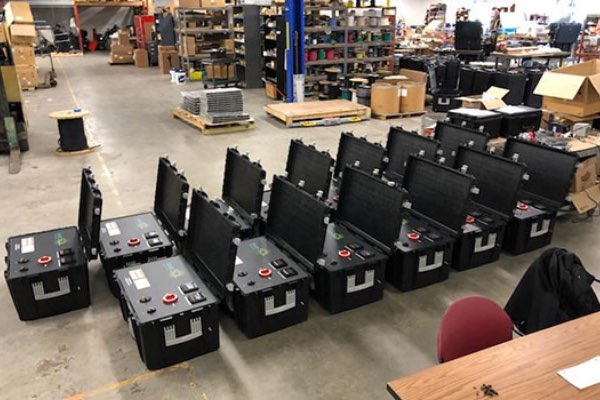
InverSOL
Entrepreneur David Rodriguez ’92 (MBA) is doing his part to provide new clean energy solutions to the nearly 3.4 million residents of Puerto Rico who live in the constant presence of destructive tropical storms and hurricanes. With his company, inverSOL, he and his team have developed a lower cost, no-maintenance solar generator designed to power basic home appliances. The company was formed in March 2018 and, six months later, inverSOL opened a manufacturing and retail facility on the island.
Educational Collaborations: Preparing the Next Generation of Change Makers
A formal, strategic partnership between RIT and the Seneca Park Zoo Society has been established. Many RIT students and faculty members have already worked at the zoo over the years from a number of disciplines, including environmental science, museum studies, new media, and game design. The zoo’s Center for Biodiversity Exploration has experienced an immediate impact from the partnership with students who have developed, designed, built, and tested an interactive experience to engage zoo guests in understanding biodiversity and environmental health for zoo guests. Additional projects, in the areas of hospitality, marketing, photography, and K-12 education are in development.
A collaborative partnership between RIT and the Genesee Country Village & Museum develops, promotes, and implements mutually beneficial projects and activities related to our organizations’ respective missions. Photography students from RIT’s College of Art and Design shoot photos there each year; a group of researchers from hospitality and tourism management in Saunders College of Business is conducting market research for a project on authenticity and sincerity in project exhibits; and students and faculty are using technology to enhance the visitor experience during museum tours using volumetric renderings to tell stories.
RIT and PAETEC, a Rochester-based telecommunications company, have entered into a new research agreement that will greatly enhance the transfer of technological innovations to industry and promote regional economic development.
There are only 50 native speakers of Seneca, the language of the Seneca Nation of Indians. And all would agree that the language is in imminent danger of becoming extinct. A $200,000 federal grant for the Seneca Language Revitalization Program has further solidified a partnership with RIT that will help develop a user-friendly computer catalogue allowing future generations to study and speak the Seneca language. The grant funded the development of an online Seneca language translation dictionary for the Seneca Language Revitalization Program. The project was funded by the Seneca Nation and awarded to RIT’s Future Steward’s Program.
RIT has partnered with Uncommon Schools to launch Rochester Prep Charter High School, a new secondary school focused on increasing the number of Rochester students who continue their education beyond high school to enroll in college and earn a bachelor’s degree. RIT faculty and staff serve on an advisory board at the school and RIT students serve as tutors and mentors to Rochester Prep students. RIT also will offer courses to Rochester Prep students based on areas RIT is known for, including computing, graphic design, gaming, and more.
The Center for Advancing STEM Teaching, Learning and Evaluation (CASTLE) is a network of faculty, projects, and programs designed to improve the way STEM education is taught. The center’s mission is to improve STEM education and outreach initiatives at RIT and to foster collaboration between STEM educators and education researchers.
Sabina Ismailova ’13 (telecommunications engineering technology) founded Education for All in Kazakhstan. Education for All is a growing nonprofit organization for children with developmental disabilities. “In our country, kids with special education needs and with disabilities are segregated. They study in special schools, which in our country are called correctional schools,” said Ismailova, executive director of Education for All. “They have a completely different curriculum, which is not individualized, and there are extremely low standards.” Her organization began three programs to balance the scales—an after-school program for 8- to-12-year-olds to learn English, math, sports, and arts for academic and social inclusion; an inclusive theater created to increase socialization opportunities for teens and young adults with special needs; and professional orientation courses, such as food preparation and cooking, for older participants.
To better prepare students for careers that will be shaped by computing, RIT’s Golisano College of Computing and Information Sciences established the Computing for All initiative. By changing the way computer science is taught, Computing for All aims to spark an interest in computing for students from all disciplines, backgrounds, and ages.
Improving the World
-
February 13, 2026
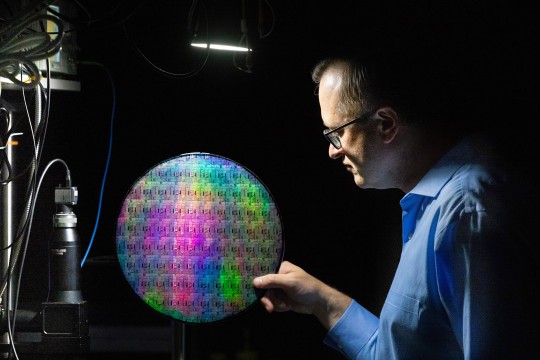
URochester, RIT receive $2 million in tech funds
Rochester Beacon discusses the impact the funds will have on the further development of an experimental network connecting the campuses, speaking to Stefan Preble, Bausch and Lomb Professor and Ph.D. program director in the Department of Microelectronic Engineering.
-
February 12, 2026
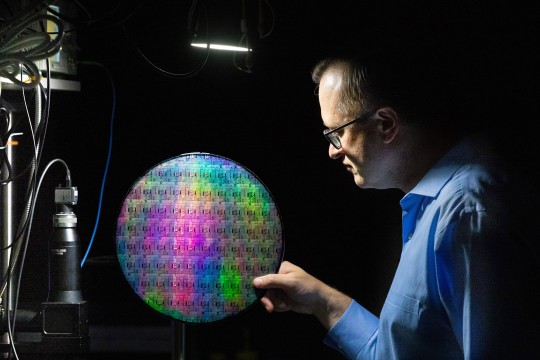
RIT, URochester to receive $2 million to advance quantum communication network
RIT and the University of Rochester will receive $2 million in federal funding to further develop the Rochester Quantum Network (RoQNET). The National Institute of Standards and Technology is providing the funding to advance the future of secure quantum communications and to build new capabilities for RoQNET.
-
February 9, 2026
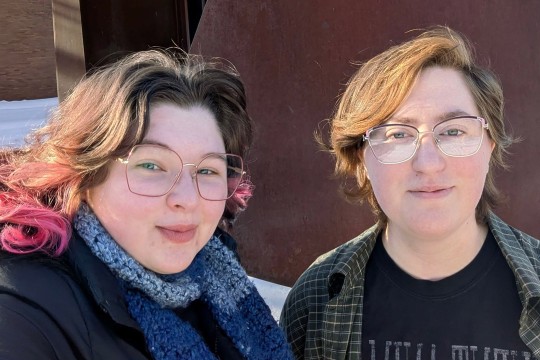
RIT students dive deep into the Albert Paley Collection to curate exhibit
Paley is internationally renowned for his large-scale decorative arts, and has a long association with RIT as a Distinguished Professor and artist-in-residence in the School for American Crafts.
-
February 6, 2026
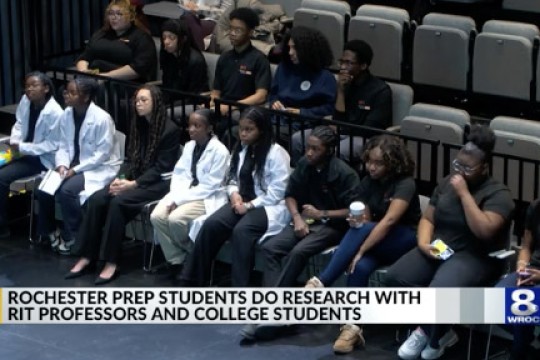
Rochester Prep students present research findings at RIT
WROC-TV speaks to Donna Burnette, executive director of the K-12 University Center, about the importance of exposing youth to collegiate opportunities.










